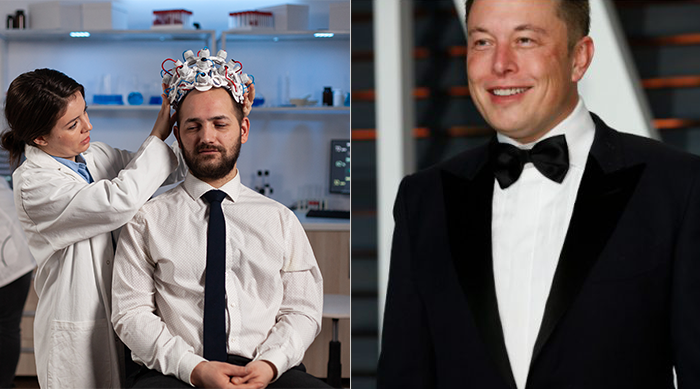Elon Musk Says Brain Chip Patient Can Control Mouse Through Thinking

©️ DC Studio / Freepik & Vecteezy
In the world of science and tech, Neuralink, led by Elon Musk, is making waves with its brain-computer interface (BCI) technology. They recently shared exciting news about their first human trial, where they implanted a chip in a human brain. We do not know if the procedure was a success, but we know that the first Neuralink patient is alive and doing well.
However, along with the excitement comes important questions. What can this chip do? What was the reason behind such an invention? Is this ethical? You will find this and more in the article below.
First Neuralink Patient
Neuralink’s big news is that they have successfully implanted a brain chip in a person. This chip lets them move a computer mouse using only their thoughts. This is a big deal because it could help people who have trouble moving or communicating due to conditions like paralysis.
“Imagine if Stephen Hawking could communicate faster than a speed typist or auctioneer. That is the goal,” wrote Musk some time ago. You can not argue that that is a noble cause.
Furthermore, in a conversation at an X Spaces event Monday night Musk stated: “Progress is good, patient seems to have made a full recovery and is able to control the mouse, move the mouse around the screen just by thinking.”
“We’re trying to get as many button presses as possible from thinking, so that’s what we’re currently working on is — can we get left mouse, right mouse, mouse down, mouse up, which is kind of needed if you want to click and drag something, you need mouse down and to hold on mouse down,” he added.
While Neuralink’s progress is impressive, it’s important to recognize that there are other companies working on similar technology. One of these competitors is Synchron. They’ve been making advancements too, using less invasive methods to help people with severe paralysis communicate and control devices with their thoughts. Synchron’s approach lets users do everyday tasks like sending texts and emails just by thinking. This shows that there are different ways to tackle the challenges in this field. It highlights the need to keep improving accessibility and how well these technologies work.
Ethical Questions
Ethical concerns have emerged alongside Neuralink’s progress. Reports of animal deaths during experiments and worries about transparency are raising red flags. It’s crucial to have strong ethical rules, be open about research, and put participants’ well-being first. People involved must follow ethical principles like respecting autonomy, doing good, and being fair as they advance science.
Arthur Caplan, chair of the Department of Medical Ethics at the University of Pennsylvania, and Jonathan Moreno, an ethics professor at the university, reacted to the issue in their blog saying: “When the person paying for a human experiment with a huge financial stake in the outcome is the sole source of information, basic ethical standards have not been met.”
Looking Ahead
As Neuralink and others keep moving forward, there’s a lot to think about. Getting approval from regulators, making sure everything is done ethically, and continuing research are all really important. It’s crucial to talk openly about these things and make sure everyone’s concerns are heard.
Neuralink’s achievement is exciting, but it also reminds us to think about the bigger picture. We need to make sure that as this technology grows, it’s done in a way that’s fair and safe for everyone involved. Keeping conversations open and making ethical choices will be key as we move forward into this new frontier of brain-computer interfaces.
Is this good news or should we worry? Tell us in the comments.
You may also like: X (formerly Twitter) Announces Subscription Fee for New Users


